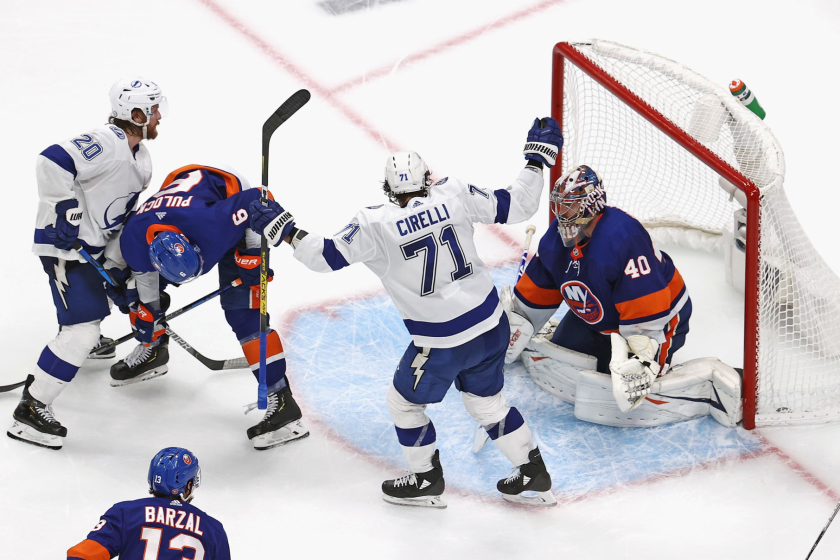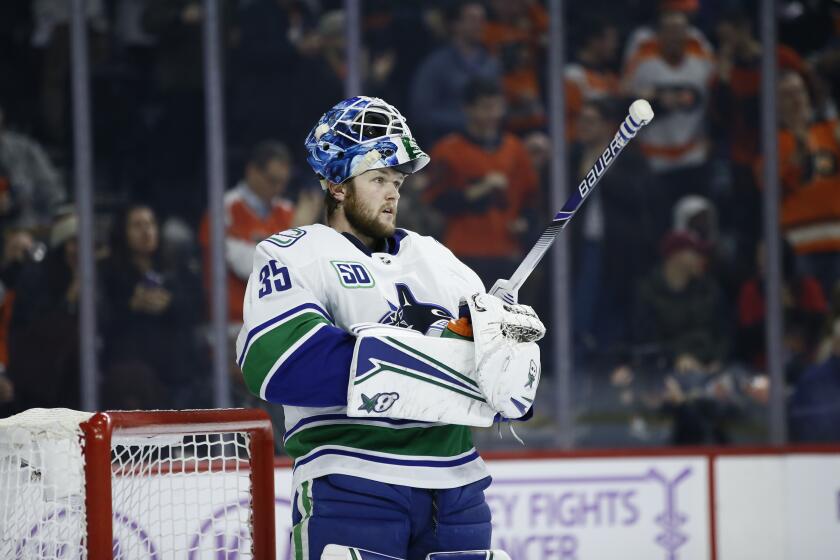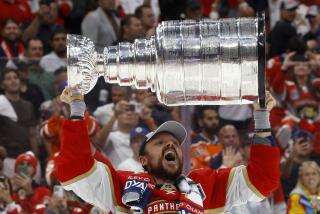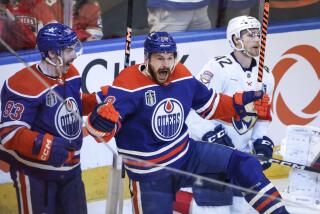Column: No booing Gary Bettman? Stanley Cup Final will be another strange experience
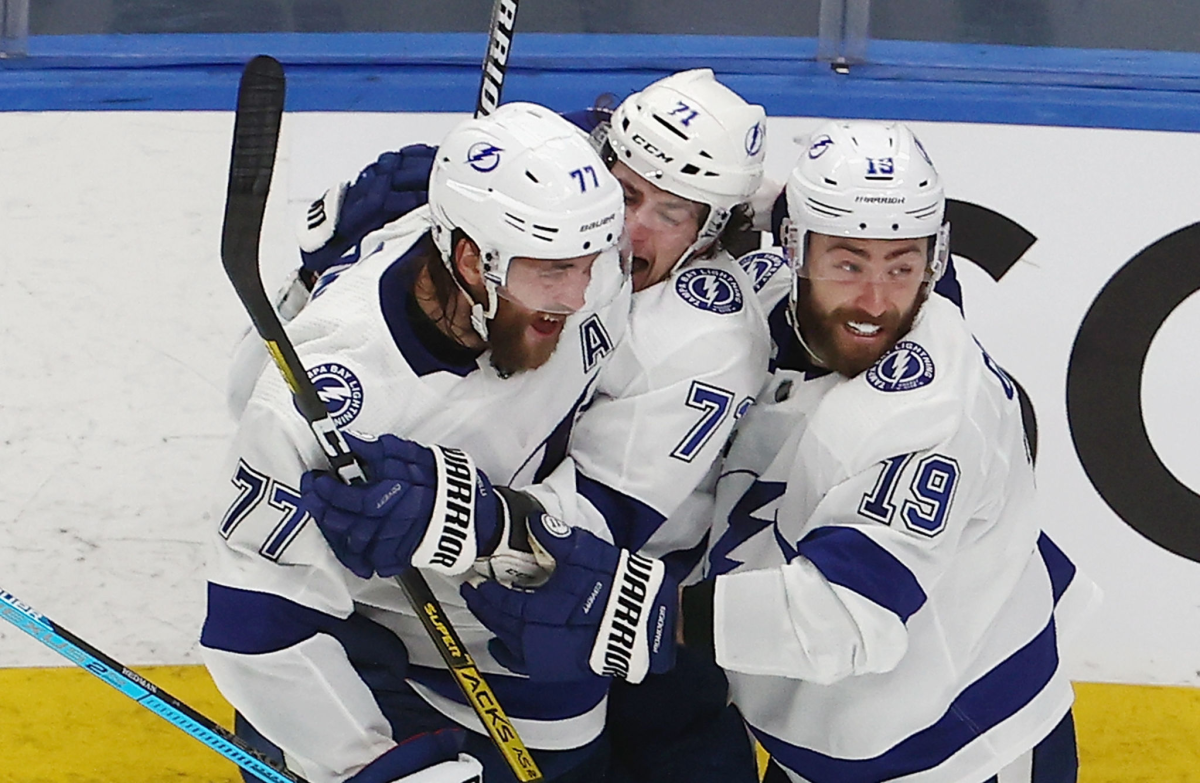
Anthony Cirelli’s overtime goal had just sent the Tampa Bay Lightning to the Stanley Cup Final and it felt like old times.
Lights flashed, the goal horn blared, and the winners dashed off the bench to hug each other and celebrate defeating the New York Islanders in the Eastern Conference finals. Fans roared — but that’s where reality intruded, because the cheers were on a recording played at Rogers Place in Edmonton.
Staging the Stanley Cup playoffs during a pandemic has meant playing in front of empty seats and taking elaborate safety precautions. Happily, those measures have kept COVID-19 out of the Toronto and Edmonton bubbles, but the absence of fans created a void that piped-in noise can’t fill. Like the Dallas Stars, who clinched the West title on Monday to earn their first Cup Final berth since 2000, the Lightning deserved real applause on Thursday. There will be no genuine cheers when the Final begins on Saturday at Rogers Place, site of the entire series.
“It’s been a little crazy,” Tampa Bay forward Blake Coleman said. “But whose 2020 hasn’t been crazy?”
Anthony Cirelli scores in overtime to lift the Tampa Bay Lightning to a 2-1 win over the New York Islanders in Game 6 of the Eastern Conference finals.
Without fans there will be no one to uphold the tradition of booing Commissioner Gary Bettman when he hands off the Cup. If he has a sense of humor he’d allow a recording of jeers to be played as he comes out to the ice.
From the early stages of the pause he imposed on March 12, Bettman contended the season could be finished; to accomplish that the NHL had to play in Canada and change its place on the sports calendar. If the Final goes seven games the Cup will be won on Sept. 30, when training camp is usually finishing. Game 4 and (if necessary) Game 5 will be played on consecutive days. Next season likely won’t start until mid-December. The financial impact of losing games and ticket revenue will bleed over to next season and beyond.
The NHL went to such great lengths to play because it got TV revenue to offset some of its financial losses and it got a place among the major leagues that found ways to restart or start. “We’ve been in a hotel for 54 straight days,” Tampa Bay coach Jon Cooper said Thursday, “and it was easy for people to say this might be one of the hardest Cups to win. It might be one of the hardest Cups ever to win.”
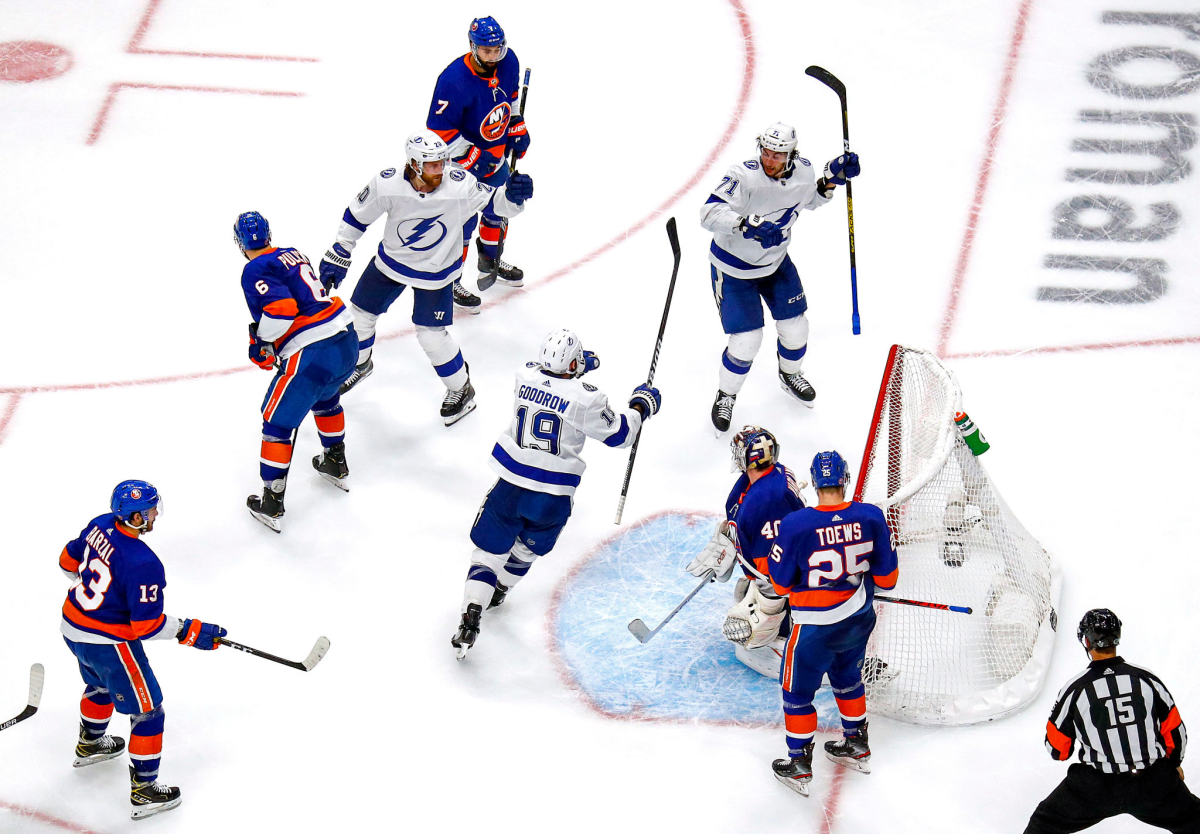
Dallas was 1-2 in the new round-robin seeding games and then beat Calgary in six games, Colorado in seven, and stifled Vegas in five. Tampa Bay, 2-1 in round-robin play, beat Columbus and Boston in five games each and the Islanders in six. The Lightning added drama by ending each of the last three rounds with an overtime victory. “My fingernails are gone,” said Lightning forward Pat Maroon, a member of the 2019 champion St. Louis Blues.
Not long ago, Dallas coach Rick Bowness discussed the uneasy feeling of living in a bubble with restrictions on movement, a factor that makes strength of mind more vital to playoff success this year than ever. The Stars and Lightning have checked those boxes along with the usual requirements of strong goaltending, timely scoring, and sacrifices on defense.
“It has been different, but there are two ways you can look at it,” Stars general manager Jim Nill said. “In life you can sit and complain about something and wish it was better or you can accept what it is and make the most of it, and that’s what we’ve done as a team. That’s what the NHL has done with this situation and that’s what all the teams that came into this bubble have done. ... Everybody has done an unbelievable job.”
Dallas’ road to this day had a rough start. Nill fired coach Jim Montgomery last December for “unprofessional conduct,” and Montgomery later said he sought treatment for alcoholism. Bowness, now 65, hadn’t been a head coach since 2003-04 but was an assistant with runner-up Vancouver in 2011 and spent five seasons as an assistant to Cooper with the Lightning, including their 2015 Final loss to Chicago. “If you love what you do, and obviously I do because I’m still at it, you wake up in the morning and go to work and you give it your best. You give it everything you have and you come home and say, ‘Wow, I did everything I could today,’ ” Bowness said.
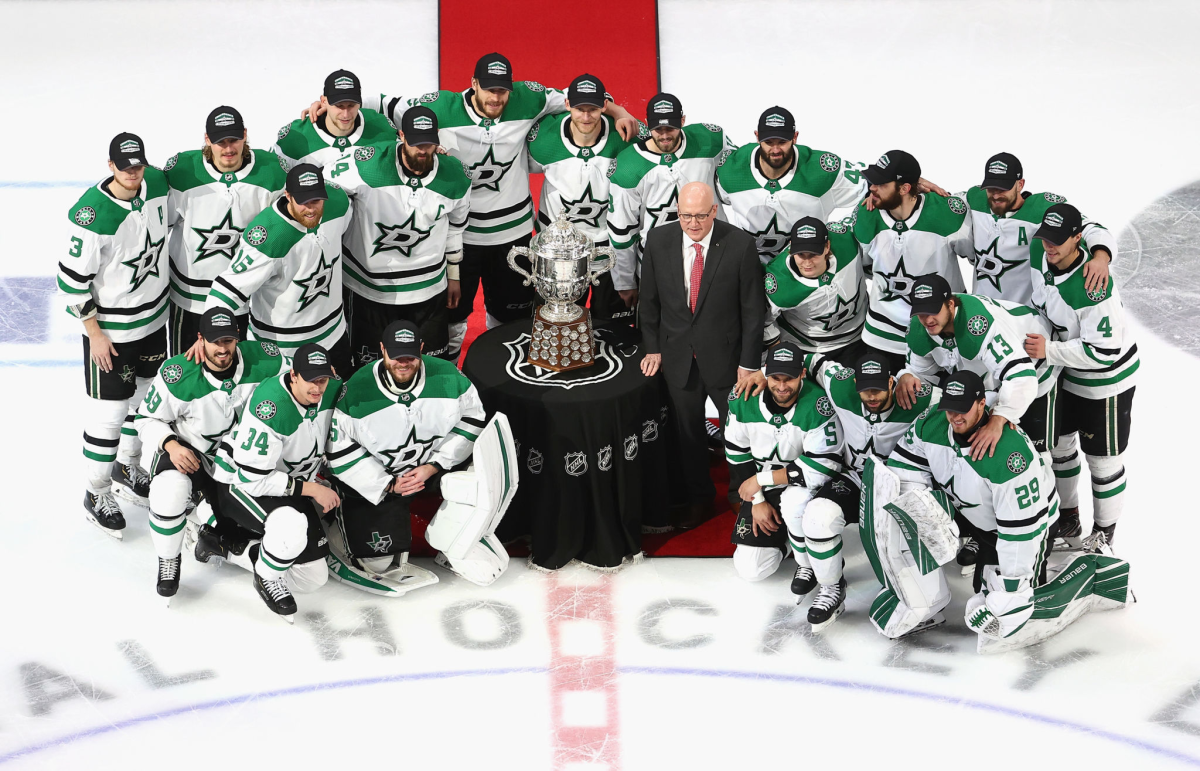
Tampa Bay general manager Julien BriseBois had to reconfigure his team’s roster after its shocking first-round playoff exit last season. He added physicality and size without losing any of the Lightning’s remarkable skill. “They’ve got good grinders, checkers, and play a heavier game, so they’ve got a real good mix,” Bowness said Friday. Lightning defenseman Victor Hedman said the loss a year ago morphed into motivation to be better. “We’re a better team, I think,” he said. “You don’t want to feel that feeling again.”
Incidentally, the Kings and Ducks missed the postseason but will be well represented in the Final. Maroon is a former Duck, and Lightning defenseman Luke Schenn played for the Ducks and the Kings. Tampa Bay defenseman Erik Cernak was drafted by the Kings, who traded him in a package for goaltender Ben Bishop in 2017.
Dallas assistant coach John Stevens coached the Kings, and defenseman Andrej Sekera is also a Kings alumnus. The Ducks’ Dallas alumni are winger Andrew Cogliano, 2007 Cup winner Corey Perry — who was bought out by the Ducks last year — and goalie Anton Khudobin. The Khudobin saga is fascinating: He couldn’t make the Ducks’ roster in 2015-16 but saved the Stars’ season during these playoffs after Bishop was injured. He has a 2.62 goals-against average and .920 save percentage. “Goals will be at a premium,” Cooper said.
Vancouver’s Thatcher Demko became the second California-born goaltender in history to play in the Stanley Cup playoffs. The first? Meet John Blue.
Life beyond the rink is different than in past years and the game experience is still strange, but one central principle remains the same. “The goal is the same regardless of the circumstances,” Bowness said. “We’re staying focused on the goal, and that’s to win the Stanley Cup.”
Keys to the series:
- Dallas gets much of its spark on offense from its mobile defensemen. Their leader is Miro Heiskanen, who ranks fourth in playoff scoring with five goals and 22 points. The Stars’ defensemen must continue to be active and sometimes get up on the rush.
The Stars focused on improving their power play before play resumed, and it paid off: they’ve had a 27.3% success rate with a man advantage. Heiskanen and forward Roope Hintz are among the NHL postseason leaders in power-play points with eight points each.
-
Dallas smothered the Vegas Golden Knights’ offense in the Western Conference finals but will face a tougher challenge against the Lightning because of the speed and depth that allow Tampa Bay to average 3.11 goals per game. Nikita Kucherov (six goals, 26 points) and Brayden Point (nine goals, 25 points) are 1-2 in the playoffs in scoring.
Tampa Bay will have a short turnaround after clinching the East on Thursday. The Lightning could be tired or they could ride the adrenaline of their recent success. Key players are nursing bumps and bruises — Point missed two games of the East finals and Steven Stamkos (lower-body injury) hasn’t played during this postseason — so the Lightning must rely on depth and will. Goaltender Andrei Vasilevskiy (1.82 goals-against average, .931 save percentage) could keep them in it while they catch their collective breath.
- Tampa Bay had the NHL’s best record last season but was swept out of the first round of the playoffs. Roster tweaks that made the team grittier made this run possible. Dallas is physical and has players who get on opponents’ nerves (that would be you, Corey Perry). Tampa Bay’s skill up front should outweigh Dallas’ strengths on defense. Tampa Bay in six.
More to Read
Go beyond the scoreboard
Get the latest on L.A.'s teams in the daily Sports Report newsletter.
You may occasionally receive promotional content from the Los Angeles Times.

